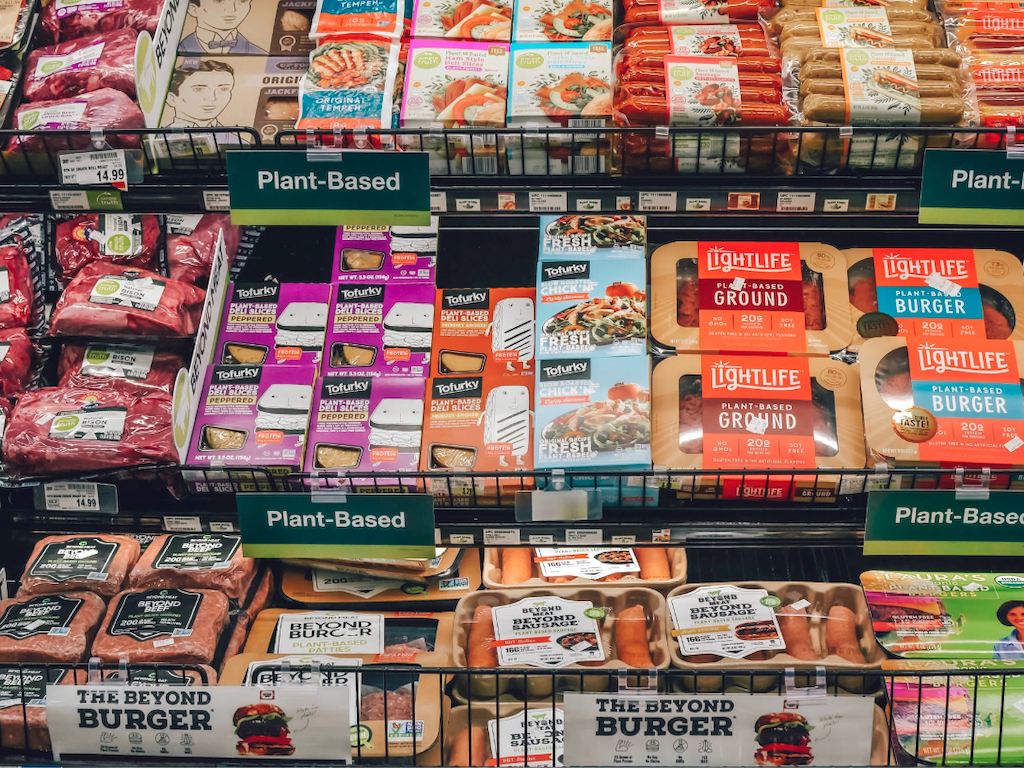3 Mins Read
Further evidence of the unstoppable flexitarian trend and shift towards plant-based eating, a new consumer study in Europe has found that nearly a quarter of the population in the region are now actively reducing their meat intake. Conducted by Berlin-based plant-based supermarket chain Veganz, the new research examined the changing attitudes of over 2,600 shoppers across Germany, Austria, Switzerland, Belgium, France, Portugal and Denmark, and through surveys and interviews, revealed some key findings about the takeover of conscious plant-centric eaters in Europe.
Below, we highlight some of the most interesting results from Veganz’s latest 2020 study and what these statistics might tell us, from whether alternative meats will become the new normal to where gaps in the market exist for food techs to innovate.
1. The number of vegans have doubled within four years
Within the last four years alone, the number of vegans in Europe (people who eliminate all animal products and byproducts in their diet and lifestyle) has doubled from 1.3 million to the current estimated figure of 2.6 million, representing 3.2% of the population. However, when the results from the study are extrapolated to include vegetarians, pescatarians and flexitarians, the group in total represent about 30.9% of the population – meaning that almost a third of all Europeans no longer consider themselves full meat-eaters anymore.
2. Strongest growth in flexitarians, making up nearly a quarter of the population
Flexitarians represented the demographic experiencing the fastest growth of all, now making up 22.9% of Europeans, according to the Veganz study. When zooming into specific countries, Austria (31.8%), Germany (30%) and Portugal (28.6%) have the highest numbers of flexitarian eaters, with the primary motivator reported being health followed by sustainability.
3. European flexitarians plan to go vegetarian and vegan in the future
While they are currently actively reducing their meat consumption, Europe’s flexitarians plan to make their habits last for the long-term and wish to gradually eliminate meat from their diets altogether. Of the flexitarian group, over 57% say they want to become vegetarians, while almost 8% stated they hope to adopt a vegan diet.
4. Meat-eaters are becoming more open to plant-based diets & meat alternatives
It isn’t just flexitarians shifting their habits increasingly towards plant-based, it’s meat-eaters too. The survey revealed that 27.2% of omnivores are becoming more open-minded about plant-based and are willing to consume meatless protein alternatives. “Carnivores are becoming a thing of the past,” wrote the authors of the Veganz report.

5. A fifth of respondents are willing to try cultivated meat
A significant portion of European consumers appear to be interested in trying cultivated meats or cell-based meats, with over 20% across all groups saying they can imagine eating it in the future. More specifically, vegans showed the most enthusiasm with 42% saying they will try cell-based meat, while 30.5% of vegetarians stated the same.
6. Insect protein isn’t appealing to consumers
While there has been rising chatter about insect protein (which isn’t slaughter-free) becoming a viable sustainable meat alternative, the response was overwhelmingly negative in the study. More than 73% – nearly three-quarters – of all participants said that insects are life forms that do not fit into their diet.
7. Shoppers want more plant-based sausages & vegan cheese
One key area of opportunity for food companies to capitalise on, according to the study, is plant-based sausages and cheese. Veganz’s survey said that nearly half of all vegan Europeans (45.5%) say they would like to see more vegan alternatives for sausages and cold cuts, followed by cheese substitutes as the next product on their want-list. There also seems to be strong demand for plant-based baked goods (38.6%) as well as more snacks (32.9%).
Lead image courtesy of Mitja Kobal / Greenpeace.




